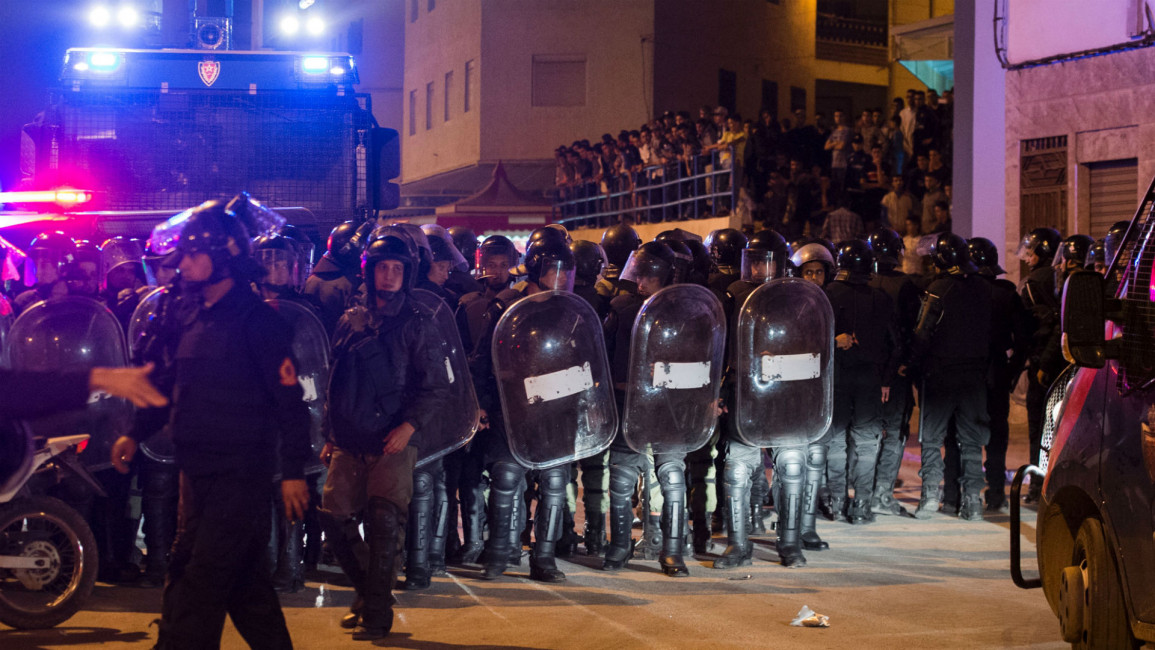Reporters Without Borders slams Morocco's coverage of Rif protests
Media watchdog Reporters Without Borders (RSF) accused the Moroccan authorities of hindering coverage of unrest in the Rif region which has been shaken by protests for nine months.
The NGO said the government's coverage of the protests is deterring journalists from travelling to the region.
"The situation of Moroccan and foreign journalists covering the events in northern Morocco keeps on getting worse," said Yasmine Kacha, the head of RSF's North Africa bureau, in a statement.
"By trying to prevent coverage of the Rif protests, the Moroccan authorities are gradually turning this region into a no-go zone for independent media."
This year has seen waves of protests and bouts of violence in the Rif, where residents have long complained of neglect and marginalisation.
The northern city of al-Hoceima and the surrounding area have been the focus of the al-Hirak al-Shaabi protest movement.
On Thursday, police in al-Hoceima fired tear gas to disperse demonstrators and stop them marching in defiance of a government ban.
RSF also called on the authorities "to free all the citizen-journalists who have been arrested and to condemn all the physical attacks against media personnel who are just doing their job by covering these demonstrations".
Dozens of people on both sides have been injured in the demonstrations and the Moroccan Association of Human Rights reported 35 arrests so far.
Local journalists said that among those arrested was online journalist Hamid El Mahdaoui.
The al-Hirak movement was born last October after a fishmonger was crushed to death in a rubbish truck as he tried to retrieve swordfish confiscated for being caught out of season.
Calls for justice later snowballed into a wider social movement demanding jobs, development, and an end to corruption in the mainly Berber region.
However, since the arrest of the movement's leader Nasser Zefzafi and more than 150 of his supporters in May, the demonstrators' main demand has been their release.



